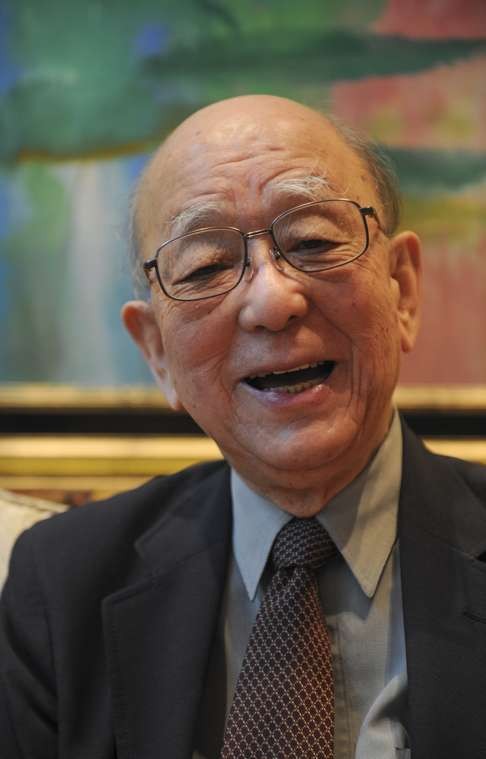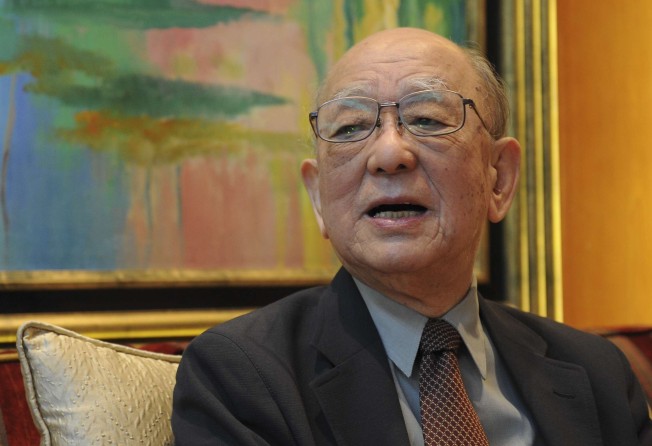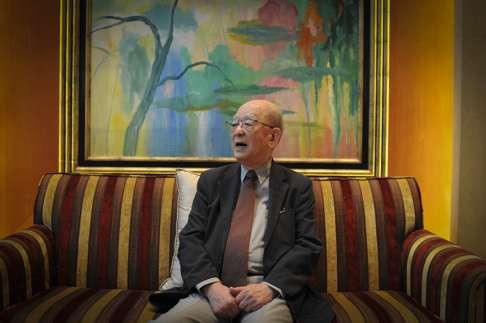
Why science matters, especially chemistry, according to Nobel winner Akira Suzuki
Chemistry is the science that produces new materials, says retired Japanese professor, in Hong Kong recently for speech to urge more young people to study science

Japanese Nobel laureate Professor Akira Suzuki is hard of hearing and tires easily, but when it comes to talking about his work, he quickly becomes animated and is eager to share his experiences.
Suzuki, 85, was recently in Hong Kong to recognise young people at the annual Social Caring Award organised by the Social Enterprise Research Institute, where he gave a speech encouraging more young people to study science in order to benefit humanity.
“Of course I don’t emphasise chemistry because I am a chemist, but I hope young people will be interested in it,” he says with a smile. “Physics, biology and mathematics are also important, as well as literature and philosophy,” he says.

“Biology is the study of animals or plants. Organic chemistry helps produce organic compounds that are very useful.”
Suzuki also promotes “green chemistry” - the development of products that have a less harmful impact on the environment.
“Today some people see chemistry just as a polluting industry, but that is a mistake,” he said in a 2011 interview with The Unesco Courier. “Without it, productivity would drop and we could not enjoy the life we know today. If there is pollution, it is because we are releasing harmful substances. Obviously, we have to adapt treatment and management regimes and work to develop chemical substances and manufacturing processes that respect the environment.”
His own contribution to the field, known as the Suzuki coupling, is used to make drugs to treat HIV, cancer, and hypertension, and in other fields, and earned him the Nobel Prize for chemistry in 2010 along with professors Richard Heck of the University of Delaware and Ei-ichi Negishi of Purdue University.
He remembers as if it were yesterday the day he got the call from the Nobel committee – October 6, 2010. He was writing an article in his study when he took a break to get some coffee in the living room. His wife told him the phone had rung and when she picked it up, the caller hung up. She thought it was probably a wrong number.
Suzuki refilled his cup and drank some coffee, whereupon the phone rang. He picked it up.
“‘Is that professor Suzuki?’ they asked, and I confirmed it was me. ‘This is the Nobel committee and we have nominated you for the Nobel Prize in Chemistry.’
“I said, ‘I don’t know if my contribution is so great to receive the prize, but if you have recommended me then I will receive it.’”

I’m a lucky boy. I was not pressured by my parents. My father died when I was in high school and my mother asked me to become a doctor. I said, ‘I don’t like to dissect animals or blood’ so she said I could do any job I wanted.
“I’m a lucky boy. I was not pressured by my parents. My father died when I was in high school and my mother asked me to become a doctor. I said, ‘I don’t like to dissect animals or blood’ so she said I could do any job I wanted.
“One of my friends is a medical doctor because his parents pushed him to become one. And even to this day he says he doesn’t like being a doctor.”
In high school he loved mathematics, but when he studied at Hokkaido University he switched his interest to chemistry, stimulated by an American textbook that, unlike Japanese textbooks, didn’t just describe chemical reactions but explained their usefulness.
“I felt that American professors were more skilful in writing textbooks,” he says wrily.
When he was looking for a field to research, he picked up another American textbook in a Sapporo bookshop, initially because of its colour. “Usually books on chemistry are black, blue or green. But this one was black and red and it made me very curious to open it up and read it. And because it so interesting I couldn’t stop reading it.”
Suzuki, now professor emeritus at Hokkaido University, wrote to the book’s author, Professor Herbert Brown – who would win the Nobel Prize for chemistry in 1979 – asking if he could study under him. The rest is history.
While he promotes the study of science and hopes young people will study chemistry, he admits to a defeat on the home front. One of his grandchildren told the professor he wanted to emulate him and become a chemist, but then 10 days later called to say he had changed his mind and would rather focus on physics.
“I was a bit sad, but it’s OK,” he says with a smile.